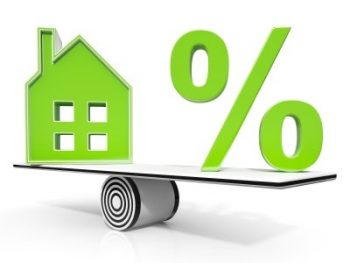
If you’ve been out of the mortgage market for a while and thinking of jumping back in, you’re going to be surprised at how many financing options you have. So much so that just the number of choices can tend to be a bit overwhelming. Yet when lenders introduce a new mortgage program it’s typically designed to address a niche market. But at the very end, it all boils down to whether or not the loan has a fixed rate or an adjustable. Between those two choices, you then get to choose how long you want your loan term to be.
Fixed-rate loans are fairly straightforward. The interest rate you select at the beginning of your loan never changes. Unless you refinance, you’re going to be making the same payment each and every month until the loan is retired. Fixed-rate loans allow you to more easily plan for your financial future, knowing the payment won’t be different at some point down the road. Fixed-rate loans are also the most common in today’s mortgage marketplace.
On the flip side, fixed-rate mortgage loans will carry slightly higher rates compared to other adjustable-rate mortgages, including so-called “hybrid” loans. A hybrid loan is one where the rate is fixed for an initial period, say three, five or seven years, before turning into a loan that can adjust once every six months or once every year. The tradeoff with a slightly higher rate is stability.
Fixed rates are also offered in varying loan terms. The term of the loan can be as short as 10 years up 30 30. There are some niche programs that extend the term up to 40 years, but they’re not a traditional conventional loan. The result for such a long term is a slightly higher rate. The 30-year term is by far the most popular and the second most popular is the 15-year term. In order to pay off the mortgage in 15 years instead of 30 means increasing the monthly payment by about two times what a 30-year term would provide. Why does someone select a shorter term if the payments are so much higher?
A shorter-term loan does mean higher payments but there is much less interest paid over the life of the loan. Each month, more of the monthly payment goes toward the outstanding loan balance and less to interest. Sometimes the monthly payment with a 15-year term is just a little too high and even so high that a borrower may no longer qualify. But there are other term options. Besides the 10, 15 and 30, there are loan terms 20 and 25. You should speak with us not only about the loan program but how long the term will be. The term goes hand-in-hand with the rate when calculating monthly payments.
 An adjustable-rate mortgage, as the name implies, can and will at some point change, or adjust. When it’s time for the rate to adjust, the lender looks up the current index and adds a margin to that index. For example, if the adjustable rate is tied to the 1-year Constant Maturity Treasury, or CMT and the margin is 2.25, the “fully indexed” rate would add the 2.25 to the current CMT rate. If the CMT is 2.00, the fully indexed rate would then be 2.00 + 2.25 = 4.25 percent and remain there until the time for the next adjustment.
An adjustable-rate mortgage, as the name implies, can and will at some point change, or adjust. When it’s time for the rate to adjust, the lender looks up the current index and adds a margin to that index. For example, if the adjustable rate is tied to the 1-year Constant Maturity Treasury, or CMT and the margin is 2.25, the “fully indexed” rate would add the 2.25 to the current CMT rate. If the CMT is 2.00, the fully indexed rate would then be 2.00 + 2.25 = 4.25 percent and remain there until the time for the next adjustment.
Adjustable-rate loans also have consumer protection “caps” which can limit how much the rate can adjust at the next adjustment period and also have a lifetime cap on how high the rate can ever get.
Adjustable-rate mortgages provide a lower start rate compared to a fixed-rate loan, hence the advantage. They’re a good option for those who may not plan on owning the property for the long term while taking advantage of the lower monthly payments. On the other hand, adjustable-rate loans can go higher, ultimately higher than what a prevailing fixed rate.
As mentioned, adjustable-rate loans can come in the form of a hybrid. A hybrid is an adjustable-rate mortgage where the initial rate is fixed before turning into a loan that can change. For example, a 5/1 hybrid has a rate fixed for five years before turning into a loan that can adjust once per year. Similarly, a 3/6 loan is fixed for three years before turning into a loan that can adjust every six months. And just like fixed-rate loans, adjustable-rate mortgages can be offered in varying loan terms.
Note: that some loan government loan programs like USDA Rural Housing do not offer adjustable-rate options. However, most Conventional, FHA and VA loans do have some sort of adjustable-rate option.
This is all basic information about your loan options, but your next move is to contact your loan officer. Based upon a conversation over the phone, you’ll be provided with a list of loan programs from which to choose. Coast2Coast Lending can walk you through the process and help identify which of the available loan programs best fit your needs. Contact us anytime at the number above, or via the contact form on this page.
